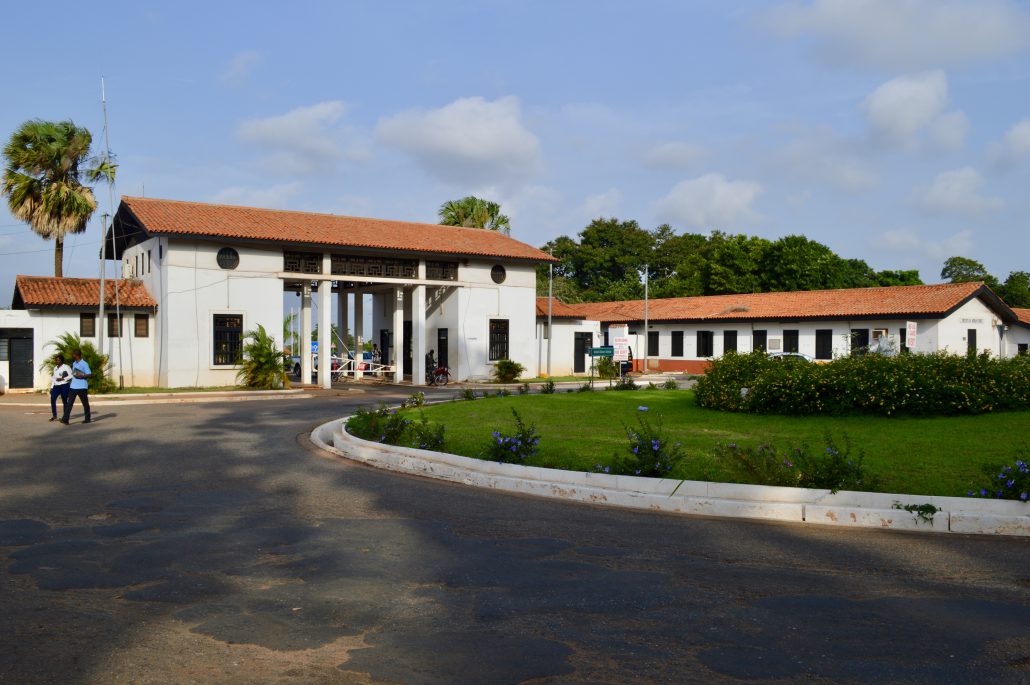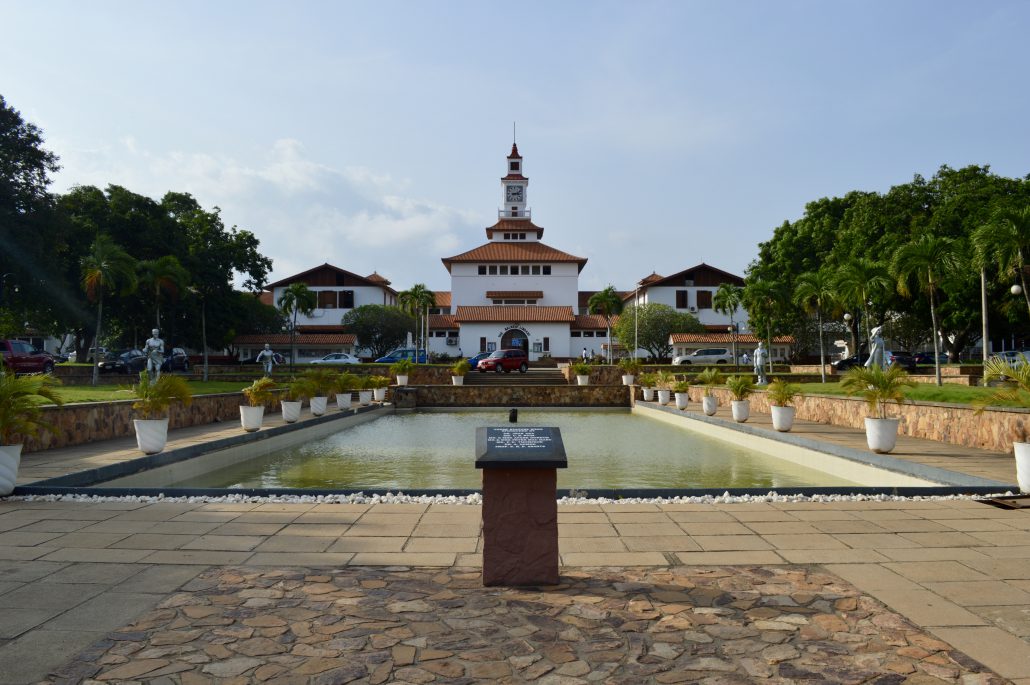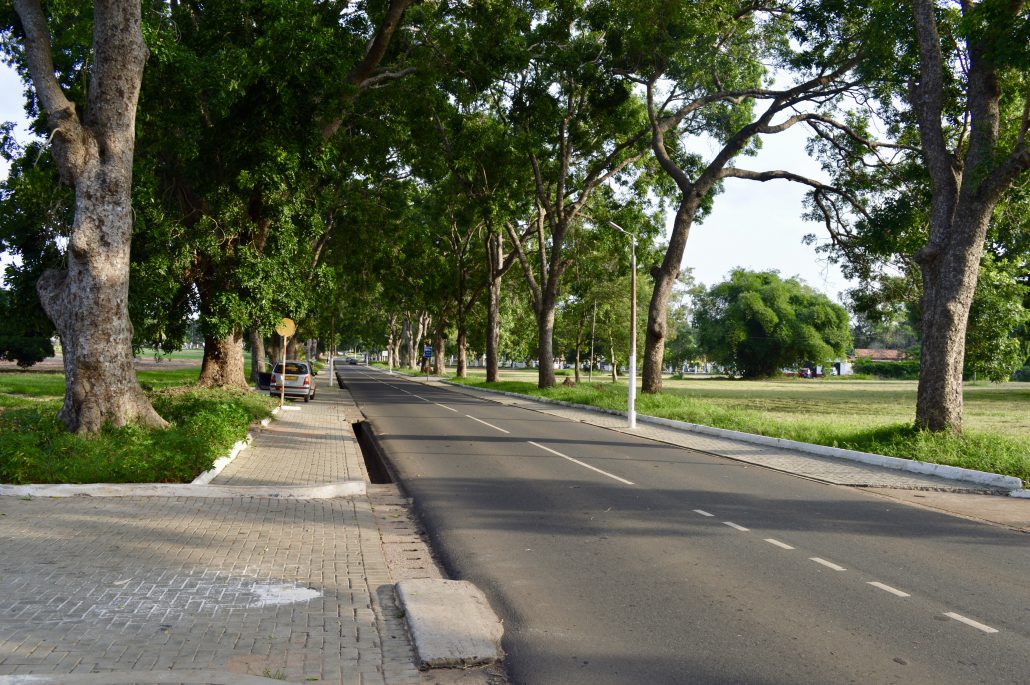BY ASHLEY YOUNG
When choosing where to study abroad, academic concerns are very important. While many students initially begin considering study abroad programs in order to travel, experience another culture, or have other sorts of experiential opportunities, they quickly realize that this is only possible if their chosen study abroad program can align with their academic needs and the requirements that they must fulfill in order to graduate. Unfortunately, comprehensive information on academics at perspective host institutions is sometimes difficult to find; some international institutions lack easy-to-navigate websites that would otherwise be used to find valuable information on academics. Thankfully, UCEAP has a wealth of information on academics at the University of Ghana, especially regarding courses, registration, and special study opportunities (research and internships). I will provide links to these resources at the end of this blog post. However, information on the academic culture at the University of Ghana is sometimes lacking in detail and accuracy. This blog post seeks to provide helpful information on this topic for students that are considering studying abroad in Ghana.


Academic Culture
The academic culture at the University of Ghana is very different than in the United States, at least in reference to the University of California. In some ways, the academic culture is more serious, and in other ways it is substantially less serious. This makes for quite an interesting and new dynamic for study abroad students!
Academic culture at the University of Ghana is more serious than at the University of California in that there is a certain added layer of formality to the way that classes operate and students interact with their professors. For example, most students dress nicely to their classes. It is rare, if not looked down upon, for a student to wear athletic or leisure-based clothing to class. Additionally, language between professors and individual students appears to be very formal; students may address professors as ‘Sir,’ and tend to approach authority figures very politely. Finally, finals at the University of Ghana are usually worth 70% of a student’s grade, and assessment is sometimes based on information broader than what has been taught in class. Students may be required to draw on information from supplementary texts and individual studies rather than solely on information provided by the professor, which is common in the UC.

However, academic culture at the University of Ghana is in many ways less serious than at the University of California. While finals may be heavily weighted and may require more individual studying to compile the appropriate information, it is also common for professors to distribute the questions to a final or give an outline of the topics that will be on a final a week or two in advance. This can make studying for an assessment extremely streamlined and simple. Additionally, from my personal experience and the experience of other students in my UCEAP program, the curriculum presented in University of Ghana classes is altogether less rigorous and comprehensive than the curriculum presented at the University of California. However, this may not be the case across the board for all disciplines or courses.
Professors and students at the University of Ghana also come across as less serious to University of California students because of their lax handling of time. This is a Ghanaian cultural feature that spills over into University operations. Professors and students alike are often, if not usually, late to or absent from class. It is common for students to request extensions for assignments and be granted these extensions. It is also common for professors to skip or disregard items on their syllabus due to their being absent from class. Finally, information is passed between professors and students rather informally – often by word of mouth through class group chats. It is imperative that international students make sure to be included in such chats and pay close attention for changes in readings, meeting times, locations, and assignments.

These differences make studying at the University of Ghana quite different than studying at the University of California. However, my experience was altogether a positive one! While some differences do take some adjusting to get used to, they are by no means insurmountable. Studying abroad in Ghana is a great experience and of extremely high value; I would certainly recommend it to anyone considering going!
Useful links
UCEAP University of Ghana Program Website:
http://eap.ucop.edu/OurPrograms/ghana/Pages/univ_of_ghana.aspx
UCEAP Ghana 2018-2019 Program Guide:
http://eap.ucop.edu/guides/ghana/1819/Pages/ghana_fall_spring_year.aspx?section=2
MyEAP Course Catalog (lists previous UG classes taken by UC students):
University of Ghana Course Descriptions:
http://www.ug.edu.gh/aad/Students-Handbook
Complimentary Twi Lesson:
Me w) asembisa. (I have a question.)
Deεn? (What?)
Da bεn? (What day?)
Bere bεn? (What time?)
Ashley Young studied abroad in Accra, Ghana in 2018: https://uceap.universityofcalifornia.edu/programs/explore-ghana



